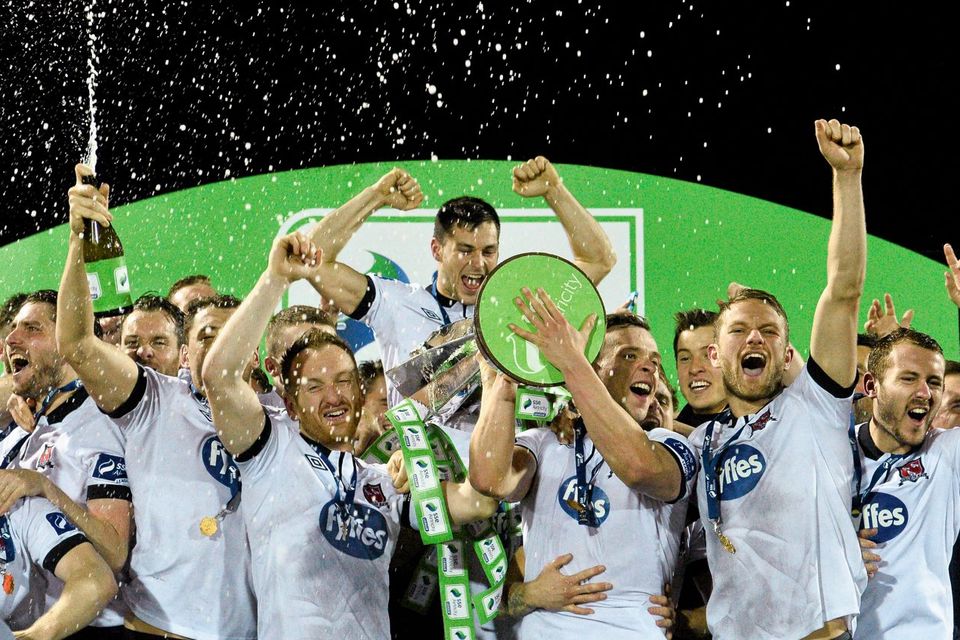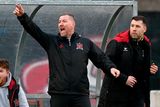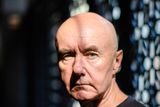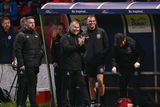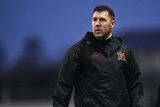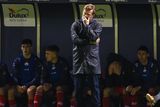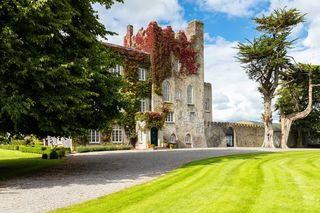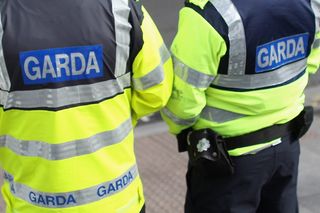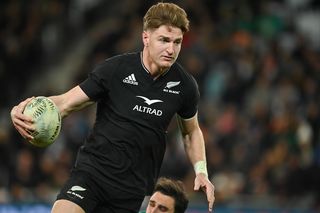Champions with true class
Dundalk players celebrate winning their first League of Ireland title in 19 years
In the end this year's League of Ireland was all about redemption. Redemption for a great club and redemption for a great manager.
To anyone who cares about the League of Ireland, the decline of Dundalk in the past decade had been deeply depressing. This was, after all, a club with a wonderful tradition; nine times League of Ireland champions, nine times FAI Cup winners, unbeaten at home in European matches against Spurs, Celtic, FC Porto and PSV Eindhoven back in the halcyon days of Jim McLaughlin and Tommy McConville.
If a club like Dundalk, from one of the country's soccer hotbeds, went under, then what hope was there for anyone else? Yet they came very close to the abyss and a mere two seasons ago needed to win a relegation play-off against Waterford United to stay in the Premier Division. Had they lost that tie, who knows what would have happened?
But they won it and then changed their fortunes by appointing Stephen Kenny as manager. Kenny seems to have been around for so long that it's easy to forget he's just 42. Then again he was the League's youngest ever manager when he took over at Longford Town aged just 27 and steered a perennially underachieving club to a Division One title, an FAI Cup final place and European football.
Since then he's won a Premier League title with Bohemians, an FAI Cup with a Derry City team he brought to within one game of a league title, and acquitted himself more than honourably at Dunfermline Athletic, steering them to a Scottish Cup final despite being woefully short of resources.
All the same he began his stint at Dundalk with a cloud hanging over his reputation. The reason? His dismissal by Shamrock Rovers after eight months at the helm. Kenny was shabbily treated by a club high on fantasies of Rosenborg-style perpetual domestic dominance. Still, failure at Dundalk would have left him looking like something of a busted flush, notwithstanding his earlier achievements.
Instead he has done an astonishing job by engineering one of the greatest revivals in League of Ireland history. Dundalk were unrated going into last season but ended it as runners-up. Going into this season there were suggestions this was over-achievement by a team ranked behind St Pat's, Shamrock Rovers and Sligo Rovers by bookies and pundits.
More fool them and us. Because this season Dundalk proved to be not just the best team, they proved to be the most exhilarating side the competition has seen in many years. They had led the league since May before a stumble against Bray Wanderers in their second-last game left them one point behind the Cork City team they defeated 2-0 in Friday night's showdown at Oriel Park to win a first title in 19 years.
The most impressive thing about Dundalk's title victory is the manner in which it was achieved. Their total of 73 goals is the highest by league champions since Bohemians in the 1977-78 season. And those goals were a direct result of Kenny's insistence on the game being played in a positive, constructive and attacking manner. That has always been the way he rolls and he maintained his faith in the passing game despite being in charge of a team forced to play half their games on a dubious Oriel Park surface whose quirks would mean he might have been forgiven for adopting an aerial approach.
Instead Dundalk played with an almost continental subtlety and swagger as the marquee flair trio of Richie Towell, Daryl Horgan and Pat Hoban prospered hugely thanks to Kenny's adventurous strategy. That both Towell and Hoban, as talented a duo as have been seen in the league for some time, were picked up for free after being released across channel and ignored by the league's bigger clubs says a great deal about the keenness of Kenny's eye.
His powers of motivation have been eloquently attested to by the number of players who have displayed form at Dundalk that few observers could have predicted. The Bray Wanderers old boys duo of Dane Massey and Chris Shields were superb all season while Darren Meenan, who'd had seven clubs in seven seasons before Kenny signed him last year, was a revelation on the right wing in the run-in.
Kenny also discovered something of a secret weapon in Brian Gartland, another Bray alumnus, whose biggest domestic honour before this season was winning the Monaghan United Supporters' Club Player of the Year award in 2009. The big centre-back managed 11 goals this year, none more crucial than the 82nd-minute toe poke which pretty much sealed victory for Dundalk on Friday.
But there is no story more remarkable than that of the man whose 48th-minute strike set Dundalk on the road to victory after they had largely been outplayed by a plucky Cork side in the first half. Because, when Stephen O'Donnell tore both his anterior and posterior ligaments against Shamrock Rovers back in April, his season looked over. Yet the club captain made a remarkable comeback and on Friday night Kenny gambled big by handing the Galway man his first start in six months. O'Donnell repaid that gamble with the sweetest of 20-yard daisy-cutters. That he was on the pitch at all speaks volumes about the character and guts present in abundance in this too often derided league.
Friday's losers are not short of those qualities either. They began the season as unregarded as Dundalk were in 2013 and can take solace from the fact three of the last five champions have been runners-up the previous year. The other two were Shamrock Rovers, winning their second in a row in 2011, and St Pat's who moved from third to first last year. In fact, you have to go back to 2003 and Bohemians' title victory for the last time a team won the league without finishing in the top three the previous season, which is good news for fans of Dundalk, Cork and Pat's.
The big challenge for Dundalk now is to avoid the boom-and-bust cycle which dogs successful League of Ireland clubs. There seems no reason why, if they treat their manager and players properly, they cannot replicate the dynasty of the Jim McLaughlin era when they won three league titles and three FAI Cups between 1976 and 1982.
But a grim warning of the fate which awaits those who do the wrong thing was available on Friday night in Sligo's Showgrounds where a home team who two years previously had been finishing the season in front of 6,000 fans were getting stuffed 4-1 by St Pat's in front of a paltry 910 souls after a year which saw the team have three different managers inside six months, with a fourth appointment imminent. There is little margin for error in the League. It is merciless.
It can also be wonderful. Dundalk lifted their first title since 1995 almost a year to the day since the death of Tommy McConville, perhaps the club's finest ever player and one of the finest to grace the League of Ireland. The magnificent McConville kept faith to the last, he was still going to Oriel Park in the month before his death through illness at the age of 67.
A native Dundalk man, he was not only a byword for character and integrity throughout a 20-odd season League of Ireland career but also a kind of embodiment of the town's footballing spirit. I can pay Dundalk's season no greater compliment than to say that it was the perfect tribute to Tommy McConville.
It's good to have you back. We missed you.
backpage@independent.ie
